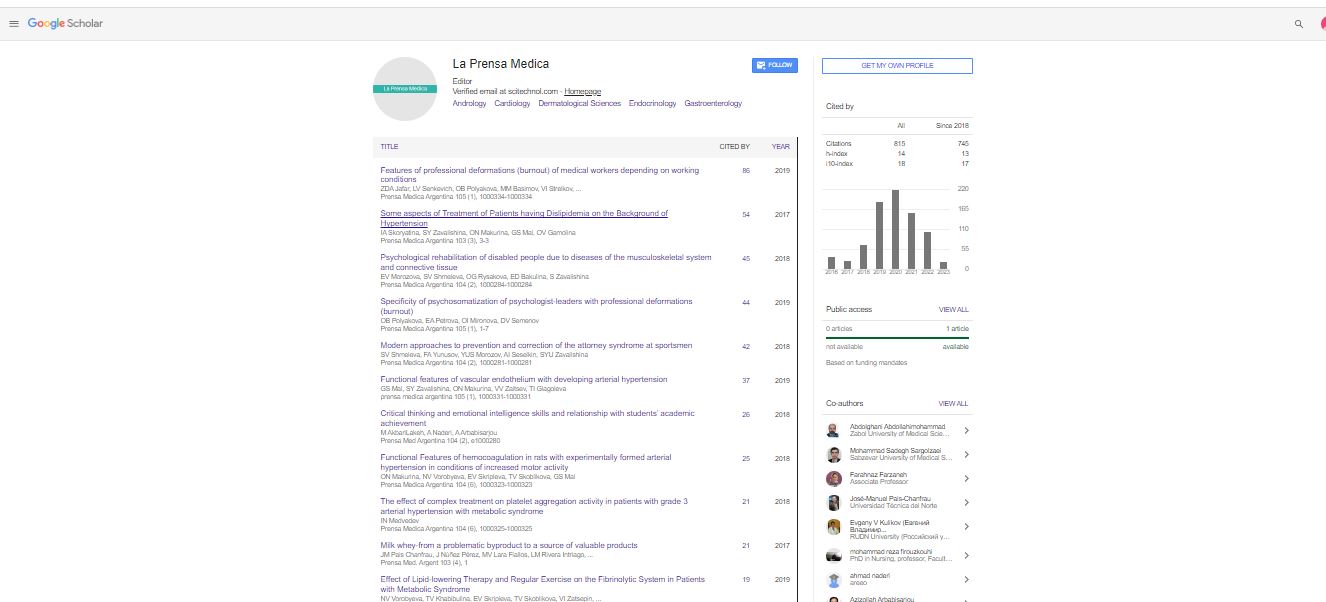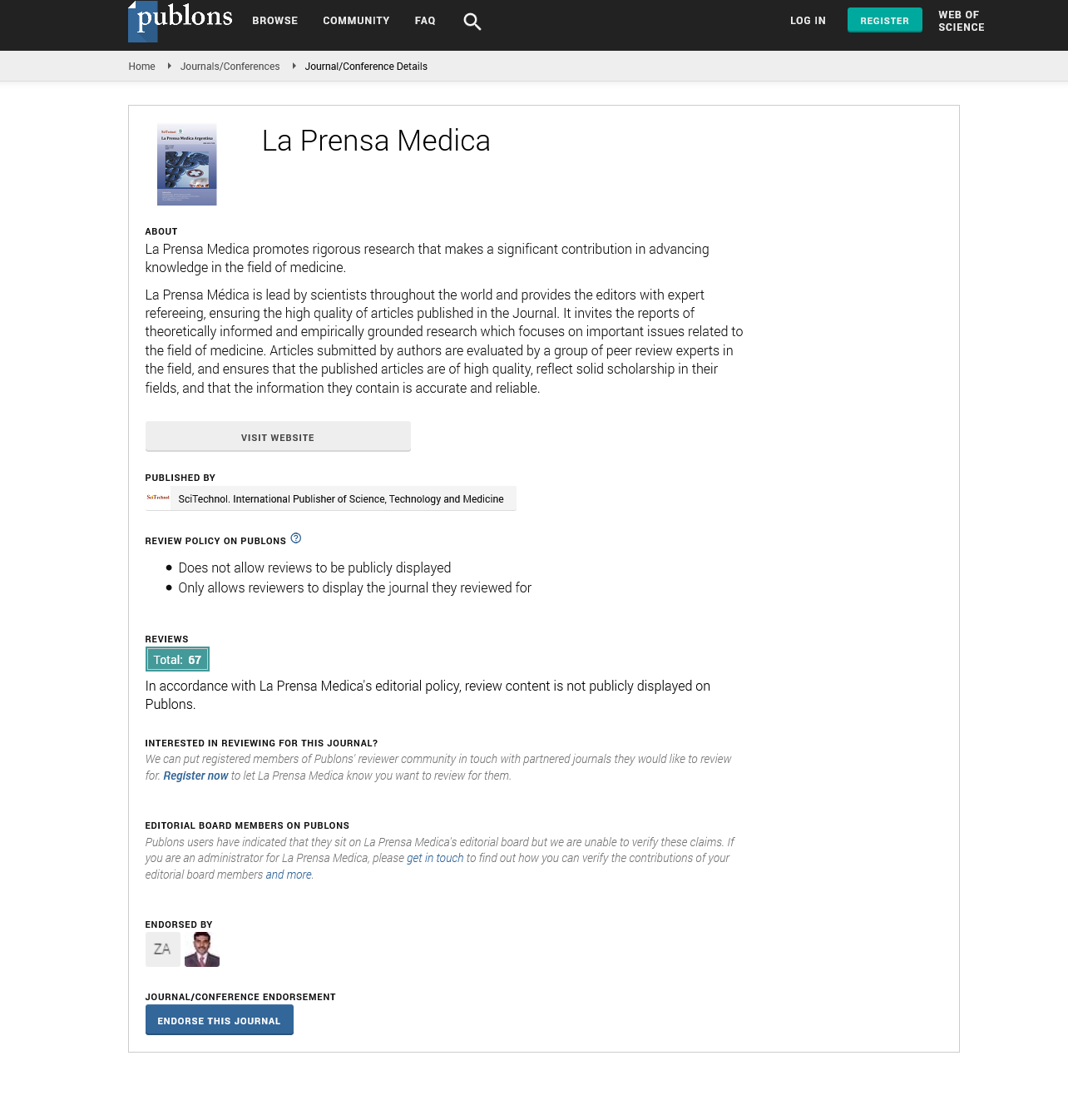Commentary, La Prensa Medica Vol: 107 Issue: 7
The Specialists from Different Areas of Medication can Likewise be Important for this Group
Keywords: Oncology, Clinical oncologists
Sherry-Ann Brown
Department of Cardiovascular Medicine, University of Wisconsin, Milwaukee, USA
Description
Oncology is the investigation of malignant growth. An oncologist is a specialist who treats malignant growth and gives clinical consideration to an individual determined to have disease. An oncologist may likewise be known as a malignant growth subject matter expert. The area of oncology has 3 significant regions in light of therapies: clinical oncology, radiation oncology, and careful oncology.
Types of Oncologist
Years Clinical oncologists treat disease utilizing medicine, including chemotherapy, immunotherapy, and designated treatment. Radiation oncologists treat malignant growth utilizing radiation treatment, which is the utilization of high-energy x-beams or different particles to obliterate disease cells. Careful oncologists treat malignant growth utilizing a medical procedure, including eliminating the cancer and close by tissue during an activity. This kind of specialist can likewise play out specific sorts of biopsies to assist with diagnosing malignant growth. There are likewise clinical terms for oncologists who represent considerable authority in focusing on explicit gatherings of patients or gatherings of tumors. Here are definitions for a few normal terms. Geriatric oncologists work with individuals with disease who are age 65 and more seasoned. More established grown-ups can have extra difficulties. Geriatric oncologists have practical experience in giving the best consideration to more established grown-ups. Gynecologic oncologists treat tumors in such conceptive organs as the cervix, fallopian tubes, ovaries, uterus, vagina, and vulva. Hematologist-oncologists treat blood tumors, like leukemia, lymphoma, and myeloma. Neuro-oncologists treat diseases of the mind, spine, and sensory system. Pediatric oncologists treat disease in kids and teenagers. A few sorts of disease happen most frequently in these more youthful age gatherings. Whenever these kinds of disease infrequently happen in grown-ups, those grown-up patients might decide to work with a pediatric oncologist. Thoracic oncologists treat diseases inside the chest region, including the lungs and throat. Urologic oncologists treat diseases in the genitourinary framework, like the bladder, kidneys, penis, prostate organ, and gonads.
An individual's malignant growth therapy plan might incorporate more than one sort of therapy, like a medical procedure, disease meds, or potentially radiation treatment. That implies various sorts of oncologists and other medical services suppliers cooperate to make a patient's general therapy plan. This is known as a multidisciplinary group. Malignant growth care groups frequently incorporate an assortment of other medical care experts, including pathologists, radiologists, doctor aides, nurture specialists, oncology attendants, social laborers, drug specialists, from there, the sky is the limit. Specialists from different areas of medication can likewise be important for this group. For instance, a dermatologist, which is an expert in skin issues, may assist with treating skin disease. The name's etymological beginning is the Greek word �?γκος (óngkos), meaning "trouble, volume, mass" and "point", and the Greek word λ�?γος (logos), signifying "study". The neoclassical term oncology was utilized from 1618, at first in neo-Greek, in awareness of Galen's work on strange cancers, De tumoribus præter naturam (Περὶ τῶν παρὰ φύσιν �?γκων). Disease endurance has worked on because of three fundamental parts: further developed avoidance endeavors to decrease openness to gamble with factors (e.g., tobacco smoking and liquor consumption), further developed screening of a few malignant growths (taking into consideration prior diagnosis), and enhancements in treatment.
Risk Factors
Diseases are regularly overseen through conversation on multi-disciplinary malignant growth conferences where clinical oncologists, careful oncologists, radiation oncologists, pathologists, radiologists, and organ-explicit oncologists meet to observe the most ideal administration for a singular patient considering the physical, social, mental, passionate, and monetary status of the patient. It is vital for oncologists to stay up with the latest with the most recent progressions in oncology, as changes in the administration of disease are very normal. A few general signs and indications related with, however not explicit to, disease, include: Weakness, protuberance or area of thickening that can be felt under the skin, weight changes, including accidental misfortune or gain, skin changes, for example, yellowing, obscuring or redness of the skin, wounds that will not mend, or changes to existing moles, changes in entrail or bladder propensities, steady hack or inconvenience breathing, trouble gulping, dryness, relentless acid reflux or uneasiness in the wake of eating, determined, unexplained muscle or joint agony, diligent, unexplained fevers or night sweat, unexplained draining or swelling Disease is brought about by changes (transformations) to the DNA inside cells. The DNA inside a cell is bundled into an enormous number of individual qualities, every one of which contains a bunch of guidelines advising the cell which capacities to perform, as well as how to develop and separate. Mistakes in the directions can make the cell stop its not unexpected capacity and may permit a cell to become carcinogenic.
 Spanish
Spanish  Chinese
Chinese  Russian
Russian  German
German  French
French  Japanese
Japanese  Portuguese
Portuguese  Hindi
Hindi 

